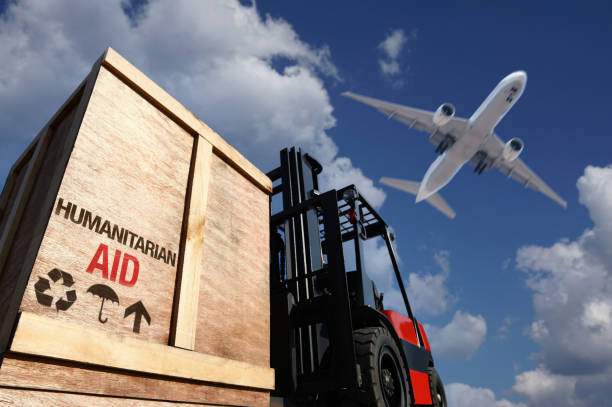Recently, the ECOWAS Commission donated N640 million to Nigeria to support victims of flood disasters in Borno and Bauchi states in Northeast Nigeria. Prior to this, the United Nations had released 8 million dollars to support victims in the flood-ravaged Maiduguri, Borno state. Although foreign aid efforts are commendable, citizens question whether the funds are properly allocated.
Foreign aid has long been a pivotal tool in international relations, that has fostered development and addressed pressing issues in low-income countries. From humanitarian assistance during crises to developmental aid designed to boost economic growth, the role of foreign aid in shaping the futures of developing nations cannot be understated.

However, while the intentions behind aid are often noble, the long-term impact of dependency on foreign aid poses significant questions for the economic futures of these countries, Nigeria being a case study.
This article explores foreign aid’s dual-edged nature, analyzing its benefits, pitfalls, and nuanced ways of influencing economic development.
The Benefits of Foreign Aid
Foreign aid can serve as a lifeline for countries facing severe poverty, political instability, or natural disasters. In moments of crisis, such as droughts, earthquakes, or pandemics, timely humanitarian assistance can save lives, stabilize economies, and prevent further devastation. This immediate, short-term aid is crucial to maintaining peace and security and averting mass human suffering.
In Fiscal Year 2022, the United States provided nearly $1.2 billion in foreign assistance to Nigeria – supporting economic development, education, democracy, health, energy and climate, humanitarian relief and security.

In the long term, developmental aid can improve infrastructure, healthcare, and education systems. Investments in these critical sectors create a foundation for sustainable economic growth. For example, aid programs that fund the construction of roads, bridges, or schools provide the physical and human capital necessary for development.
In some instances, foreign aid has supported governance reforms and fostered greater political stability. By encouraging transparency, accountability, and democratic governance, aid donors can help build the institutions necessary for economic growth. These investments can reduce corruption and foster environments conducive to entrepreneurship and foreign investment, critical drivers of economic development.
The Dependency Dilemma
While foreign aid can undoubtedly spark development, it has also led to what many critics refer to as “aid dependency.” This refers to a situation in which countries become reliant on external assistance for their survival and growth, unable to develop the capacity to generate independent, self-sustaining economies. An article by GOUNI Repository reveals that foreign aid was not properly administered in Nigeria, and has led to a developmental crisis in the country.

A primary concern is that the influx of foreign aid can distort local economies. For example, when donor countries flood a nation with food aid, local farmers may find it difficult to compete with free or subsidised goods, disrupting the agricultural sector. Moreover, the promise of consistent aid may reduce the urgency for recipient governments to prioritise self-sufficient economic strategies. Instead of investing in their infrastructure, industries, or revenue-generating projects, governments may rely heavily on foreign funds, perpetuating a cycle of dependency.
Charting a Path Forward
To navigate the complexities of foreign aid and avoid the pitfalls of dependency, developing nations must work toward creating a balance between leveraging foreign assistance and fostering local capacity. This requires a multi-faceted approach. First, governments must focus on building strong, accountable institutions that effectively utilise aid without becoming reliant on it. This includes improving tax collection, diversifying their economies, and investing in homegrown industries that can drive economic growth independent of foreign funds.

Second, donor countries and organisations must shift their focus from aid-perpetuating dependency to aid-promoting self-reliance. Programs that prioritise capacity-building, knowledge transfer, and entrepreneurship can help nations develop the skills and resources needed for sustainable economic development.
Lastly, international aid policies need to be more inclusive of recipient countries’ voices, ensuring that aid is aligned with the development goals and needs of the people it is intended to benefit.
